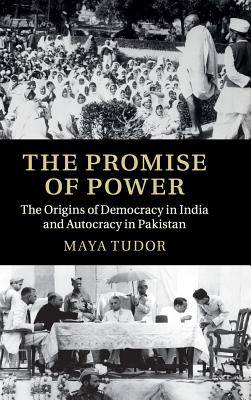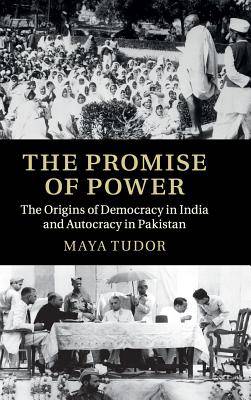
- Afhalen na 1 uur in een winkel met voorraad
- Gratis thuislevering in België vanaf € 30
- Ruim aanbod met 7 miljoen producten
- Afhalen na 1 uur in een winkel met voorraad
- Gratis thuislevering in België vanaf € 30
- Ruim aanbod met 7 miljoen producten
Zoeken
The Promise of Power
The Origins of Democracy in India and Autocracy in Pakistan
Maya Tudor
Hardcover | Engels
€ 194,95
+ 389 punten
Uitvoering
Omschrijving
Under what conditions are some developing countries able to create stable democracies while others are perpetually prone to instability and authoritarianism? Despite broadly similar historical and political legacies, India's and Pakistan's regimes diverged radically after independence. In The Promise of Power, Maya Tudor seeks to explain why this occurred through a comparative historical analysis. Drawing on interviews, colonial records and early government documents, Tudor challenges the prevailing explanations of democratization, which attribute political outcomes directly to low levels of economic development and high levels of inequality. Instead, she suggests that the emergence of a stable democracy in India and an unstable autocracy in Pakistan is best explained by the historically-specific interests of the dominant social group which led each independence movement as well as by the varying strength of the political parties which were created to pursue those interests.
Specificaties
Betrokkenen
- Auteur(s):
- Uitgeverij:
Inhoud
- Aantal bladzijden:
- 258
- Taal:
- Engels
Eigenschappen
- Productcode (EAN):
- 9781107032965
- Verschijningsdatum:
- 29/04/2013
- Uitvoering:
- Hardcover
- Formaat:
- Genaaid
- Afmetingen:
- 152 mm x 231 mm
- Gewicht:
- 566 g

Alleen bij Standaard Boekhandel
+ 389 punten op je klantenkaart van Standaard Boekhandel
Beoordelingen
We publiceren alleen reviews die voldoen aan de voorwaarden voor reviews. Bekijk onze voorwaarden voor reviews.











